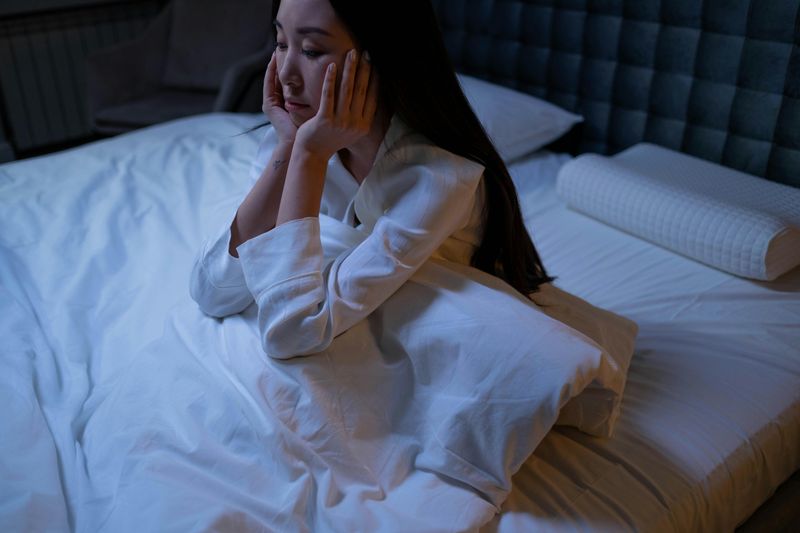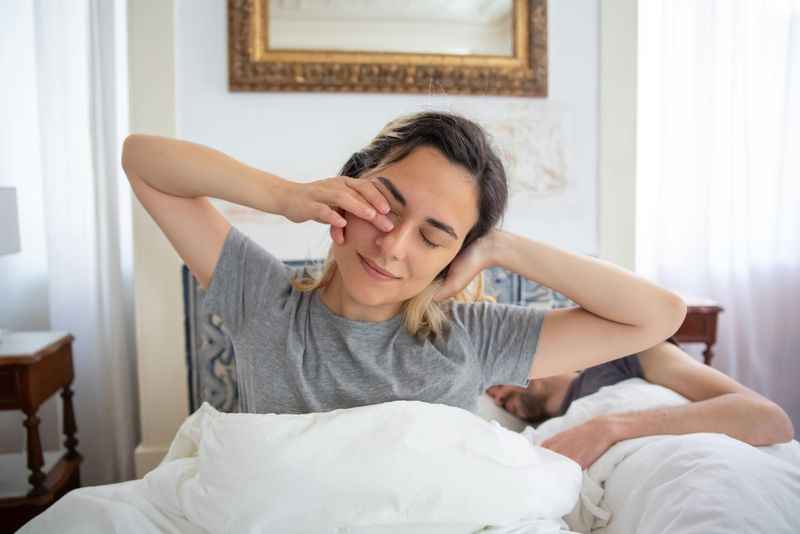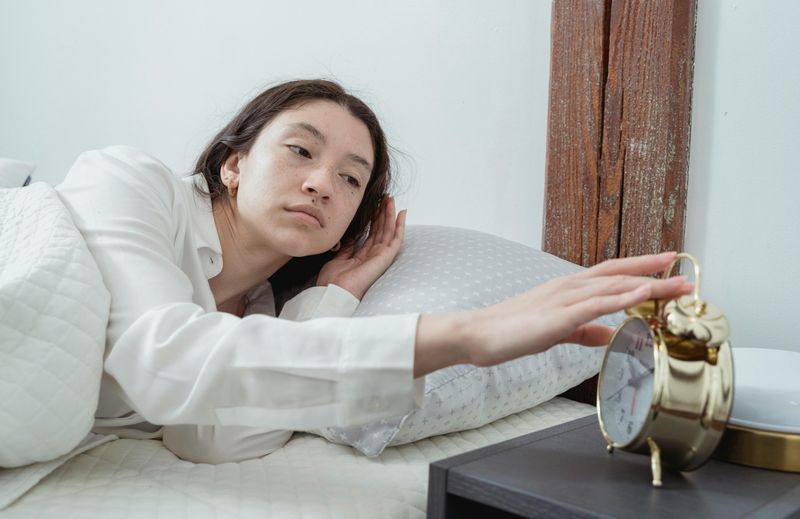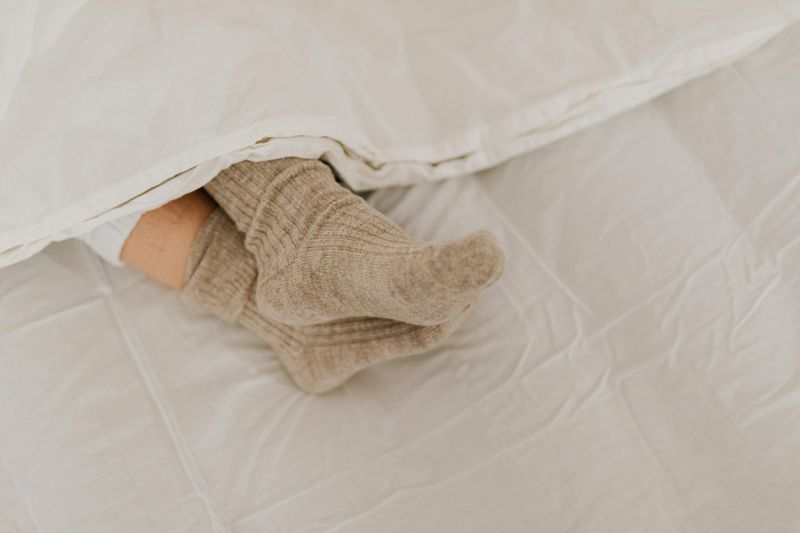Sleep isn’t just about closing your eyes and waking up refreshed. It’s a complex process that affects your mood, memory, and overall health in ways you might not realize. Psychologists who study sleep have discovered some fascinating truths that can help you understand why rest matters so much. Whether you’re struggling to fall asleep or just curious about what happens when you do, these expert-backed facts will change how you think about your nightly routine.
1. Your Brain Actually Gets Cleaned While You Sleep
While you’re dreaming away, your brain is running its own nighttime cleaning service. Scientists discovered that a special system called the glymphatic system kicks into high gear during sleep, flushing out toxic waste products that build up throughout the day.
Think of it like taking out the trash before it piles up too much. This cleaning process removes harmful proteins linked to brain diseases like Alzheimer’s. Without enough sleep, these toxins stick around and can cause problems with thinking and memory.
Getting quality rest literally keeps your brain healthy and functioning at its best.
2. Teenagers Really Do Need More Sleep Than Adults
If you’re a teen who loves sleeping in, science has your back! During adolescence, the body’s internal clock naturally shifts later, making teens feel more awake at night and sleepier in the morning.
This biological change means teenagers genuinely need 8-10 hours of sleep to function properly. Their brains are still developing, and sleep plays a crucial role in learning, emotional regulation, and physical growth. Early school start times can work against this natural rhythm, leaving many teens chronically tired.
Parents and teachers should understand this isn’t laziness—it’s biology working exactly as it should during this important life stage.
3. Blue Light from Screens Tricks Your Brain into Staying Awake
Ever wondered why scrolling through your phone at bedtime makes falling asleep harder? Blue light from screens mimics daylight, sending confusing signals to your brain.
Your body produces melatonin, the sleep hormone, when it gets dark outside. But blue light suppresses this production, essentially telling your brain it’s still daytime. This disruption can delay sleep by hours and reduce overall sleep quality. Even just 30 minutes of screen time before bed can interfere with your natural sleep cycle.
Psychologists recommend putting devices away at least an hour before bedtime or using blue light filters to minimize the impact.
4. Naps Can Boost Your Memory and Creativity
Quick power naps aren’t just for preschoolers—they’re actually brain boosters for everyone. Research shows that a 20-30 minute nap can significantly improve memory consolidation and problem-solving abilities.
During these short rest periods, your brain processes information you learned earlier, making it easier to recall later. Some of history’s greatest thinkers, including Einstein and Edison, were famous nappers who credited rest with their creative breakthroughs. The key is keeping naps short; longer naps can leave you groggy and interfere with nighttime sleep.
A well-timed afternoon snooze might be exactly what your brain needs to perform at its peak.
5. Chronic Sleep Deprivation Affects You Like Being Drunk
Missing sleep doesn’t just make you tired—it actually impairs your abilities, similar to alcohol intoxication. Studies reveal that staying awake for 18 hours straight affects your reaction time and judgment as much as having a blood alcohol level of 0.05%.
After 24 hours without sleep, that impairment jumps to the equivalent of 0.10%, which is over the legal driving limit in most places. Your decision-making skills, coordination, and attention all suffer dramatically. Yet many people regularly function on insufficient sleep without realizing how much it’s affecting their performance and safety.
Prioritizing sleep is just as important as avoiding other risky behaviors.
6. Your Sleep Position Reveals Personality Traits
Believe it or not, how you curl up at night might say something about who you are. Psychologists have found interesting correlations between preferred sleep positions and personality characteristics, though the science is still developing.
People who sleep in the fetal position often tend to be sensitive and shy, while back sleepers may be more confident and open. Side sleepers are frequently described as easygoing and social. Stomach sleepers sometimes show bold, sociable traits, but can be more anxious underneath. Of course, these are generalizations, and many factors influence both sleep habits and personality.
Still, it’s a fun topic to explore with friends!
7. Dreams Help Process Emotions and Solve Problems
Dreams aren’t just random movies playing in your head—they serve important psychological purposes. Your brain uses dream time to work through emotional experiences, especially difficult or stressful ones you faced during the day.
This emotional processing helps you wake up feeling better about challenging situations. Dreams also allow your mind to make unexpected connections between ideas, which is why you sometimes wake up with solutions to problems you couldn’t solve while awake. Many artists, scientists, and inventors have credited dreams with inspiring breakthrough ideas.
Keeping a dream journal can help you tap into these insights and better understand your emotional landscape.
8. Consistent Sleep Schedules Matter More Than You Think
Going to bed and waking up at wildly different times each day confuses your body’s internal clock more than you might realize. Your circadian rhythm thrives on consistency, and irregular sleep patterns can lead to what psychologists call social jet lag.
This condition mimics the exhaustion and disorientation of traveling across time zones, even though you never left home. People with inconsistent sleep schedules often struggle with mood problems, weight gain, and difficulty concentrating. Even sleeping in on weekends can disrupt your rhythm for several days afterward.
Maintaining regular sleep and wake times, even on days off, helps your body function optimally and improves overall well-being.
9. Sleep Deprivation Weakens Your Immune System
When you skimp on sleep, you’re not just risking tiredness—you’re actually making yourself more vulnerable to getting sick. Research demonstrates that people who sleep less than seven hours per night are three times more likely to catch a cold than those who sleep eight hours or more.
During sleep, your immune system releases proteins called cytokines that fight infection and inflammation. Without adequate rest, your body produces fewer of these protective substances. Sleep also helps your body create antibodies and immune cells that remember how to fight diseases you’ve encountered before.
Getting enough quality sleep is one of the best natural defenses against illness.
10. The Perfect Bedroom Temperature for Sleep Is Cooler Than You Think
Most people keep their bedrooms too warm for optimal sleep without realizing it. Sleep psychologists and researchers agree that the ideal temperature for quality rest falls between 60-67 degrees Fahrenheit, which feels surprisingly cool to many.
Your body temperature naturally drops as you prepare for sleep, signaling your brain that it’s time to rest. A cooler room helps facilitate this temperature decrease, making it easier to fall asleep and stay asleep throughout the night. Overheated rooms can cause restless sleep, frequent waking, and reduced time in deep, restorative sleep stages.
Adjusting your thermostat down a few degrees might be the simple fix your sleep routine needs.










